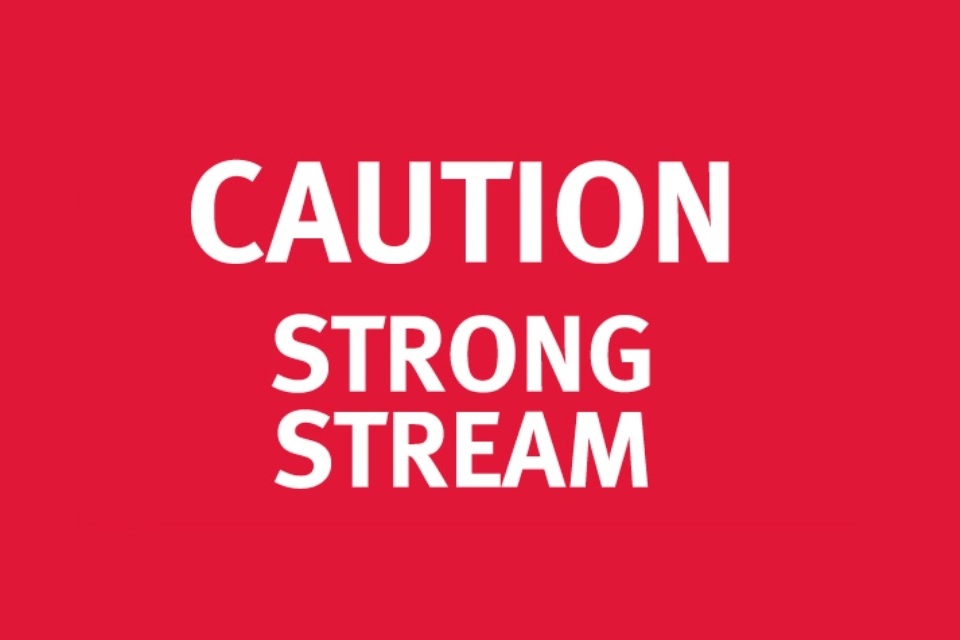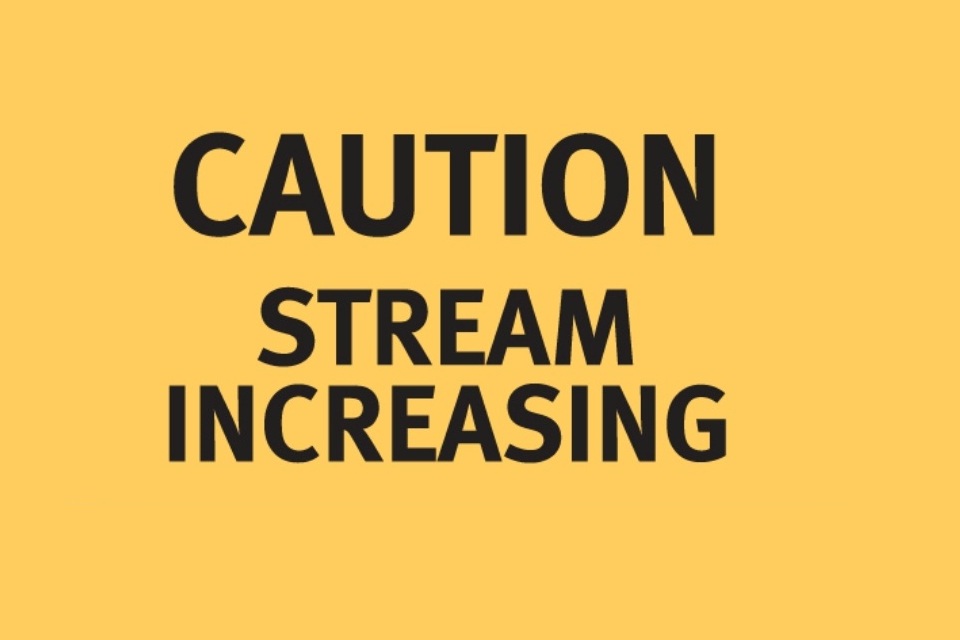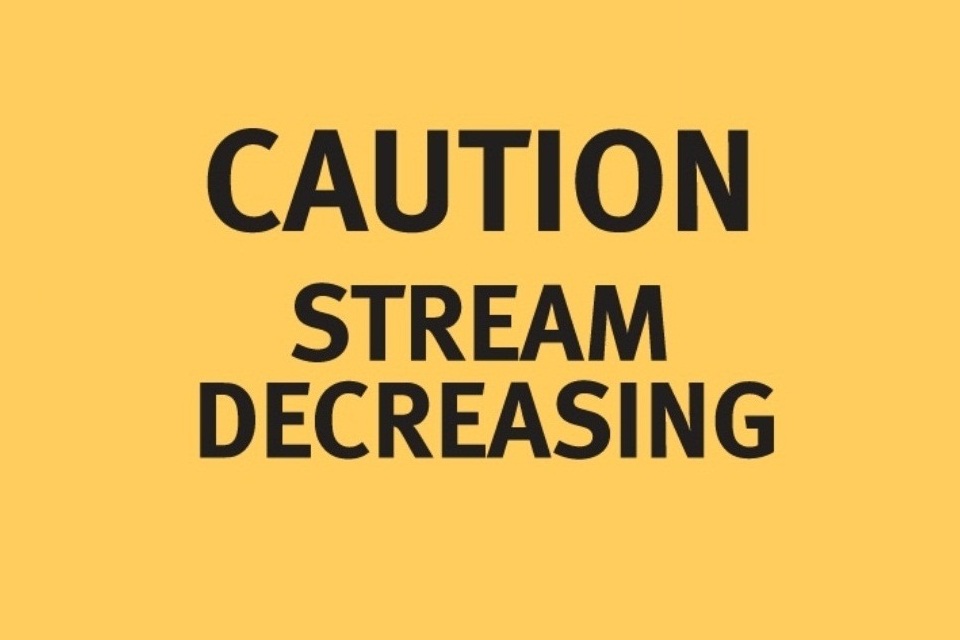Environment Agency

Before you take your boat out on the River Thames, you should find out the current river conditions and make sure you understand what they mean. You should also check if there are any closures or restrictions in your area.
Current river conditions: updated 4 August 2024
We update our information about the river conditions and strong stream warnings once a day by 11am. You should also check the warning boards displayed at lock sites or talk to lock staff if you are using your boat on the river.
Lechlade to Oxford
| Reach | Current conditions |
|---|---|
| Upstream of St Johns Lock | No stream warnings |
| St Johns Lock to Buscot Lock | No stream warnings |
| Buscot Lock to Grafton Lock | No stream warnings |
| Grafton Lock to Radcot Lock | No stream warnings |
| Radcot Lock to Rushey Lock | No stream warnings |
| Rushey Lock to Shifford Lock | No stream warnings |
| Shifford Lock to Northmoor Lock | No stream warnings |
| Northmoor Lock to Pinkhill Lock | No stream warnings |
| Pinkhill Lock to Eynsham Lock | No stream warnings |
| Eynsham Lock to Kings Lock | No stream warnings |
| Kings Lock to Godstow Lock | No stream warnings |
| Godstow Lock to Osney Lock | No stream warnings |
| Osney Lock to Iffley Lock | No stream warnings |
Oxford to Henley
| Reach | Current conditions |
|---|---|
| Iffley Lock to Sandford Lock | No stream warnings |
| Sandford Lock to Abingdon Lock | No stream warnings |
| Abingdon Lock to Culham Lock | No stream warnings |
| Culham Lock to Clifton Lock | No stream warnings |
| Clifton Lock to Days Lock | No stream warnings |
| Days Lock to Benson Lock | No stream warnings |
| Benson Lock to Cleeve Lock | No stream warnings |
| Cleeve Lock to Goring Lock | No stream warnings |
| Goring Lock to Whitchurch Lock | No stream warnings |
| Whitchurch Lock to Mapledurham Lock | No stream warnings |
| Mapledurham Lock to Caversham Lock | No stream warnings |
| Upstream of Blakes Lock | No stream warnings |
| Caversham Lock to Sonning Lock | No stream warnings |
| Sonning Lock to Shiplake Lock | No stream warnings |
| Shiplake Lock to Marsh Lock | No stream warnings |
| Marsh Lock to Hambleden Lock | No stream warnings |
Henley to Teddington
| Reach | Current conditions |
|---|---|
| Hambleden Lock to Hurley Lock | No stream warnings |
| Hurley Lock to Temple Lock | No stream warnings |
| Temple Lock to Marlow Lock | No stream warnings |
| Marlow Lock to Cookham Lock | No stream warnings |
| Cookham Lock to Boulters Lock | No stream warnings |
| Boulters Lock to Bray Lock | No stream warnings |
| Bray Lock to Boveney Lock | No stream warnings |
| Boveney Lock to Romney Lock | No stream warnings |
| Romney Lock to Old Windsor Lock | No stream warnings |
| Old Windsor Lock to Bell Weir Lock | No stream warnings |
| Bell Weir Lock to Penton Hook Lock | No stream warnings |
| Penton Hook Lock to Chertsey Lock | No stream warnings |
| Chertsey Lock to Shepperton Lock | No stream warnings |
| Shepperton Lock to Sunbury Lock | No stream warnings |
| Sunbury Lock to Molesey Lock | No stream warnings |
| Molesey Lock to Teddington Lock | No stream warnings |
What the warnings mean
Any river activity poses a greater risk when there are strong currents, high river levels or cold weather conditions. River flows can increase even during the summer months. Never assume that sunny weather means the conditions are not hazardous.
The Environment Agency may display warning boards at locks to inform river users of the conditions. Read the explanations of what these mean for you. Do not take risks and never underestimate the power of the river.
Strong stream warning

Strong stream warning board
When these red boards are displayed, the Environment Agency advises users of all boats not to navigate. The strong flows make it difficult and dangerous.
People in hire boats arriving at a lock where these boards are displayed should stop immediately. Contact your hire boat operator to ask for instructions.
Stream increasing warning

Stream increasing warning board
When these yellow boards are displayed, the Environment Agency advises:
- users of all unpowered boats not to navigate
- users of powered boats to find a safe mooring
River flows are likely to strengthen, and strong stream boards could be displayed very soon and without further warning.
Stream decreasing warning

Stream decreasing warning board
When these yellow boards are displayed, the Environment Agency advises:
- users of all unpowered boats not to navigate
- users of powered boats to navigate with caution
Using navigation marks
When travelling upstream, keep red navigation buoys to your left and green navigation buoys to your right.
When travelling downstream, keep red buoys to your right and green buoys to your left.
You may pass single yellow marker buoys on either side.
In all cases, keep well clear of navigation buoys. Be aware of possible shoals on the inside of river bends.
Dealing with changing river conditions
If you find yourself in conditions where the Environment Agency advises you to stop navigating, please take the advice and stop. Even the most experienced boater can be caught out, so think about those who could be put in danger if they have to help you.
You may find the following measures helpful. Not all conditions will be serious enough to need all the suggested measures.
Moor your boat in a safe place, preferably in a marina or at a recognised mooring. Limited space may be available at some locks. Moor against high banks if you can.
Ensure your mooring lines are fastened to secure fixings such as bollards, rings or even trees. Put out extra lines for more security and allow enough slack for a further rise in river levels. Do not rely on your own mooring pins or stakes, as they might not hold.
If possible, put extra fendering (such as scaffold poles or strong timber posts) between your boat and the bank side. This may prevent your boat drifting onto the river bank and becoming caught up when levels drop.
Make sure you have a safe exit ashore from your boat. If not, consider returning home or finding alternative accommodation until conditions improve.
